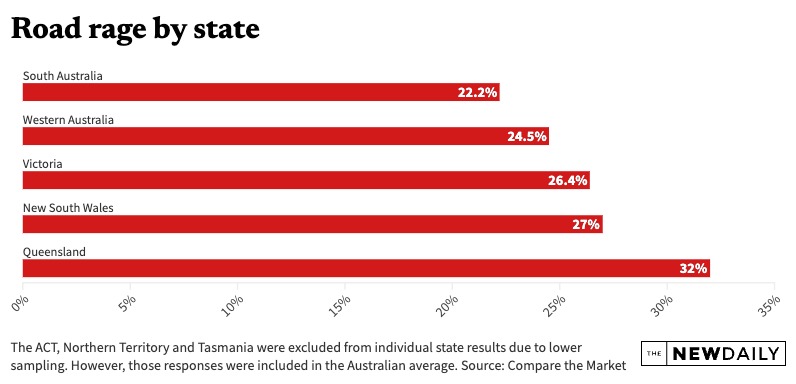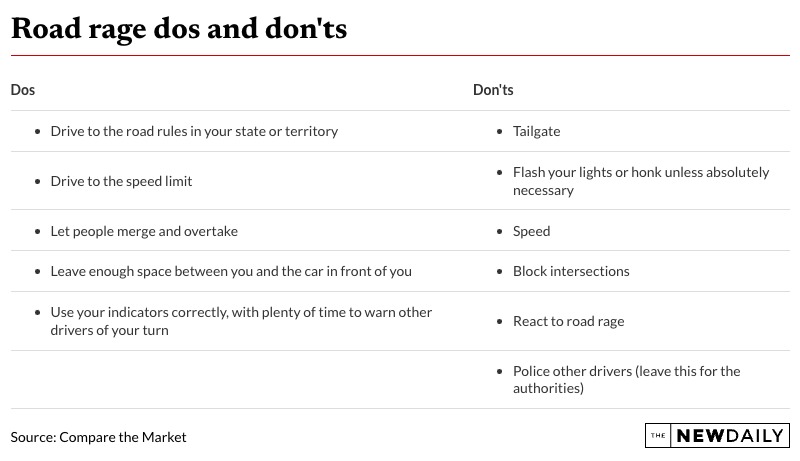Queensland revealed as our worst state for road rage

Source: TND/Facebook/Dash Cams of Australia
Whether you’re forced to slam the brakes as someone cuts in front of you, or peak-hour traffic moves at a glacial pace when you’re already late for work, driving can easily leave you seeing red.
But some drivers take their anger too far, and particularly in Queensland.
Compare the Market has found more than a quarter of Australians have either witnessed or experienced road rage.
Almost 78 per cent stated they were a witness to it, 17.8 per cent said that road rage had been directed at them, and 4.3 per cent admitted they were the perpetrators.
Queensland had the most residents reporting they had witnessed or experienced road rage with 32 per cent, while South Australia had the least with 22.2 per cent.
Gen Z also reported witnessing double the amount of road rage as Baby Boomers.
Compare the Market general manager of general insurance Adrian Taylor said road rage counts as a distraction for drivers, which can easily lead to accidents.
“Not only is distracted driving the leading cause of accidents, but common road rage acts such as abuse, speeding, tailgating and even changing lanes erratically, can be considered punishable offences by the law,” he said.
“It’s best to think twice before letting your anger get the better of you on the road.”
Taylor also said while other drivers’ behaviour may grind your gears, keeping a cool head could help ensure a safe arrival at your destination.
He said letting your anger get the best of you or attempting to police others yourself could make a situation go from bad to worse.
If something particularly dangerous is happening, or a crash has occurred due to road rage, he recommended making note of the vehicle’s registration details once safe to do so, and notifying the police as soon as possible.
“In these instances, the use of dashcams can be really helpful in recording any other details about the incident, such as the exact location and time it occurred,” Taylor said.
“Also, in cases where you may have been involved in an incident, it can be a great supportive document to show that you were not at fault if you need to file a claim.”








